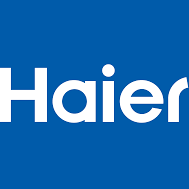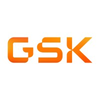The Demise of the Day Trader

Whatever you trade – stocks, bonds, foreign exchange, futures, commodities, options - know that it is not a 50/50 game. Yes the market could go up, or it could go down. But the odds of making money from trading are actually worse than odds at a casino - with trading you have to take into consideration commission for every trade you execute and another factor that is largely ignored, slippage.
Back in the day, so-called day traders made a living scalping the markets for a tick here and there. They would see the bid size accumulating, and quickly place a buy order before the market ticked up. They wouldn’t hold the order for long, usually happy to square up with a tidy but small profit. They would rarely hold positions overnight. Simple times.
The demise of day-traders came at the advent of computer trading in the early 1990’s.
Back when trading was conducted in pits, you could scalp a tick here or there. Pit traders did that for a living. Orders were phoned in to the brokers manning the booths around the ring. The brokers would then hand signal the orders to their guys inside the pits. You could watch the hand signals and quickly front run a large order. So if the hand signal was to pay 49 on 500 lots, you could quickly try to buy the 49’s before their pit guy did, and then show an offer at 50 and likely get filled once the big order hits the market, thus netting one tick profit. Some houses like Credit Suisse devised their own secret hand signals to avoid the possibility of being front runned by some pit broker. With the advent of screen trading, front running simply shifted from floor to screens.
Chinese walls segregating brokers from traders were supposed to stop brokers front running their house orders, but it still happened. Then from the 1990’s trading became dominated by so-called black box trading. Computers would crunch numbers and send orders to the exchanges. Computers removed human emotion from the equation. Humans wrote the code, but it was computers that analyzed the data and sent the orders. At its peak, computer trading accounted for 80% of US equity trading and still dominates trading in almost all asset classes. It was a relatively simple way to make money -
Let’s say Apple stock was traded on 4 different exchanges. Self-funded proprietary trading companies would have computers monitoring the price action on all 4 exchanges, and if there was a discrepancy, they would send an order to buy on the venue where Apple was cheap, and immediately sell on the other exchange. This was all very good as this electronic form of arbitrage ensured prices were consistent on every venue.
These proprietary-trading groups would justify their actions under the guise of market making. Exchanges loved them as they traded huge volumes (and generated huge profits for the exchanges). So the exchanges gave them preferential commission rates + incentives, thus boosting their profits even further. Then the exchanges started to offer datacenters on premise where the prop groups could put their servers. These prop groups also invested heavily in networks, going so far as placing orders from Telco providers for fibre optic cables to run “as the crow flies” from exchange to exchange. It became a race to zero. Prop groups wrote directly to exchange APIs to receive data. The data not only included the bid and offer, but also size of bid and size of offer all the way through the deck. The data from all exchanges was fed into their servers and any discrepancies in prices were acted upon by sending relevant orders to each exchange. Since a number of prop groups were involved in this, they competed on speed. Order execution was measured not in seconds, but in milliseconds. Even if you had super fast connectivity, if another prop group could execute orders just one millisecond faster, you could be running a losing system.
I asked a very senior executive at one of the largest prop groups in the world what their worst losing month was.
His response – “Losing month? We have never had a single losing day!”.
For them there was almost zero market risk. They would hold positions for just fractions of a second. Even if the market turned sharply, they would be out of their positions before human traders had a chance to react. It was pure operational risk – risk of system failure, network failure, a failure in the code. Needless to say when an Earthquake hit Taiwan and broke an undersea fiber optic cable, many prop groups lost sizable money. But despite operational risk, many groups continue to thrive.
If you place an order on any exchange, in all likelihood, your counterparty will be one of the prop groups. The industry calls this practice High Frequency Trading. HFTs trade millions of trades each month. The average time they hold a position before closing it (by doing the reverse trade) is less than 0.3 seconds. In all likelihood, that prop group is the narrowest market, showing both a bid and an offer. They don't care if the market goes up or down, they just care that it moves.
The thing is, this is for the most part perfectly legal. They call it liquidity provision, or market making, but essentially it is legal front running. By co-locating their servers as close to the source of information, they have the advantage. They will say that, well anyone can do the same, again true. But their infrastructure costs run into the millions. That shows how lucrative HFT can be.
They take huge chunks of money out of the system to pay themselves millions and millions of dollars. They often pay themselves better than their peers at Goldman Sachs. That Porsche money comes out of the pockets of every other user whether a mutual fund or the guy on the street trading his life savings.
You can’t argue a case against them as they hire the smartest people on the planet. They claim that the markets have never been so efficient. They claim that because of their volume, exchanges worldwide have been able to reduce their fees for everyone. They claim that during market routs, the guy on the street is able to cut their losses because they continue to provide a two-way quote. It is hard to argue any of these cases as they are indeed true. Commissions are cheaper than ever, but even cheaper for prop groups. There are two way prices on the screen, but try to hit a bid during a market rout and likely a computer got there first, so you change your order to a market order (sell at any price), and your slippage costs you another few thousand dollars. If you are a frequent trader, you are pretty much doomed. You cannot compete against a computer sitting right next to your exchange venue. The only way to beat the stock market, or any other market is to trade infrequently and with a long-term horizon. If you day trade, you churn out commission and slippage will kill you. By all means, hold a long-term diversified portfolio and place stop loss orders. Just don’t ever consider day trading.
Short term traders will always lose out to well funded High Frequency Trading.
It is not a 50/50 game. You are better off putting your money on black.
Dean Owen is two-decade veteran of the Capital Markets and is Co-Founder of Quimojo, a revolutionary new concept in Global Campus Recruitment.
来自Dean Owen的文章
查看博客
There has been a steady flow of talent migrating to beBee over the last couple of years, but in the ...

It was Friday, the markets were dead so I thought I’d hop in a cab during lunch to my favourite jaun ...

This was far from a Bond scene. No black tie show down with Le Chiffre over a game of poker. This wa ...
相关专业人员
你可能对这些工作感兴趣
-
Medical Representative/医药代表
发现在: beBee S2 CN - 6天前
GSK Henan, 中国 OTHERİş Yeri: China - Henan - Shangqiu · Yayın tarihi: Apr · Role Title 职位名称 (Senior) Medical Representative · (高级) 医药代表 · (Senior) Executive Medical Representative · (高级) 医药专员 · Role Purpose 职位目标 · 通过专业拜访、学术研讨活动, 为病患和客户提供专业的服务,传递GSK品牌信息,维护GSK的品牌信誉,以完成公司整体业务目标。 · Key Accountabilitie ...
-

模型结构设计师
发现在: Talent CN S2 - 3天前
Haier Group Qingdao, 中国全部机会 / 智家定制生态圈 / 创新设计平台 / 大资源中心小微 / 模型结构设计师 机会编号:JD · 模型结构设计师 薪资面议 · 青岛市 · 本科及以上 · 3年以上 · 刘女士 | · 收藏 我要推荐 · 职责描述 1、模型结构设计、部件及工件BOM的制定,项目节点跟踪; · 2、保障模型项目交期及质量,确保模型转化达到设计要求; · 3、模型方案储备及沉淀; 任职要求 1、本科3年及以上工作经验,机械.电子等相关专业; · 2、熟练应用2D,3D(UG最佳)专业软件; · 3、对家电产品的结构和各部分功能有一定的了解; 工作地点 ...
-
VP, Counterparty Credit Risk
发现在: Talent CN S2 - 1周前
Huatai Securities Shenzhen, 中国VP, Counterparty Credit Risk · Key Responsibilities: · Evaluate credit risk of various counterparty's, including but not limited to, Financial Institutions, Funds and Corporate clients, etc · Prepare and participate in the due diligence of potential counterparty · Lead and perfor ...



评论
Ken Boddie
7年前 #4
Phil Friedman
7年前 #3
Dean Owen, I have no doubt that brokerage houses are on their way out. I just meant to draw an analogy with the "house" in gambling, especially parimutuel betting. Cheers!
Dean Owen
7年前 #2
Phil Friedman
7年前 #1